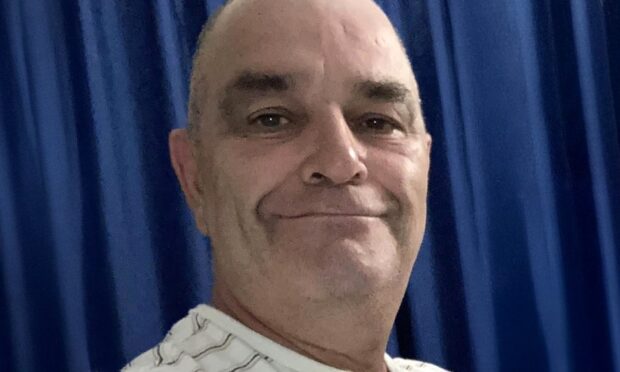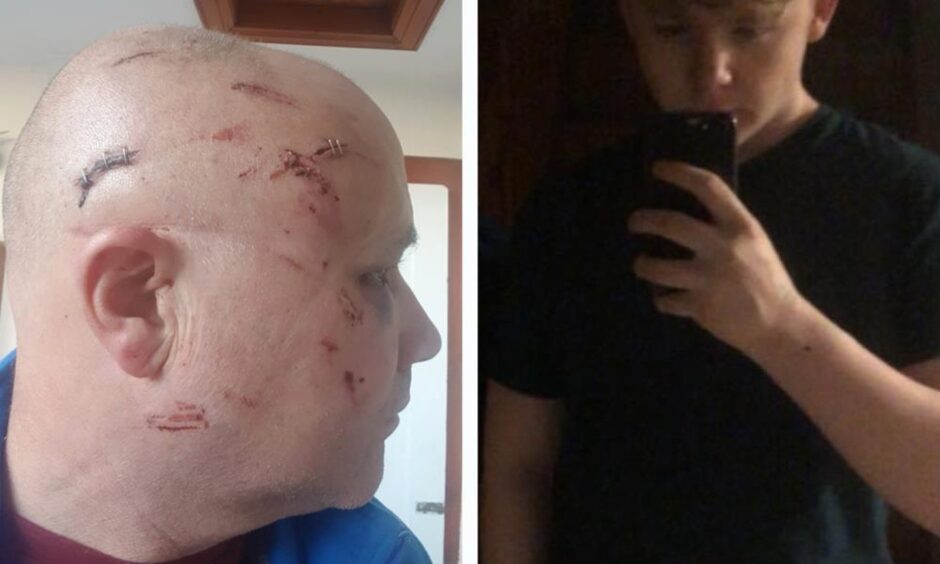A teenager who killed an Elgin bus driver is waiting to hear if his sentence will be cut after an appeal hearing today.
And the wife of victim Keith Rollinson today revealed the boy wrote to her – but she viewed it as a ploy.
The teen, who was 15 when he killed Keith and cannot be named due to his age, had attacked another bus driver on a previous occasion.
He was given a supervision order for that offence – and it ended just weeks before he fatally attacked Keith, 58.
On that occasion – last February – the boy tried to board a bus at Elgin Bus Station.
But dad-of-two Keith told him he was too intoxicated and was concerned for the welfare of his other passengers.
Moments later, the boy viciously assaulted Keith and rained down punches on his head and body before others pulled him away.
Court hearing today
Keith tragically passed away at Dr Gray’s Hospital and hundreds turned out to both a memorial event and his funeral service in Elgin to pay tribute to the Thurso-born dad of two.
The boy – now 16 – admitted culpable homicide and was sentenced to four years and four months at the High Court in Inverness last November.
A remote hearing took place today in which the boy’s legal representatives argued his sentence should be reduced.
They argued the boy should be given more credit for his early guilty plea.
The lawyers also claimed the boy’s young age – and sentences from similar cases – should be considered again.
Three judges will now consider the arguments and will publish their written judgement in the coming weeks.
Sitting in on the hearing was Keith’s widow, Susan Rollinson.
‘He should have got 10 years’
She told the P&J afterwards: “From day one, we – Keith’s family – have been treated like the criminals, not the victims.
“This boy had attacked another bus driver in the past.
“He had only just finished serving his sentence in relation to that two weeks before he killed Keith.
“The sentence, in my view, was too short. The boy should have got 10 years.
“He actually wrote a letter to me. I never opened it and I sent it back.
“My opinion was that he would have been encouraged to write that letter as it would have looked good for him in court.
“After sentencing, I asked if we could appeal the sentence to see if it could be longer and I was told it couldn’t happen – yet he could appeal.
“It seems everything is in the favour of the offender, not the victim.”
A court official had previously assured the victim that his attacker would face consequences if he did not comply – but that never happened.
‘They don’t give a s***’
Instead, McLellan – now an adult – was simply given more time to do community service.
Afterwards, Stuart told us: “I’m really angry. It’s all about him and how his mental health was affected.
“They obviously do not give a s*** about me.”
Responding to that case, Mrs Rollinson said: “I was outraged when I read that in the P&J – but perhaps not surprised.
“It’s yet another example of how victims are let down.
“There is a policy in Scotland which amounts to ‘if you’re under 25, you can do no wrong’.”
She was referring to Scottish Sentencing Council guidelines which suggest sentences should be shorter for under 25s.
‘It’s the biggest load of rubbish’
This is, the guidelines state, because “a young person will generally have a lower level of maturity and a greater capacity for change and rehabilitation, than an older person”.
Mrs Rollinson said: “It’s the biggest load of rubbish I’ve ever heard.
“What it tells us is that, if you’re under 25 and do something bad, not much will happen.
“But if you’re under 25 and want to do something good, that’s okay.
“For example, a 16-year-old can join the Army but not be sentenced in the same was an adult can be.
“We seriously need an urgent change in the law so other families do not have to go through the heartache and loss I have.”
Her call was taken up by Scottish Conservative leader Russell Findlay.
‘Not fit for purpose’
At Holyrood in December, Mr Findlay said: “These guidelines are not fit for purpose and should be scrapped.
“Due to the under-25 sentencing guidelines, he received a sentence of just over four years and it’s possible that he won’t spend any time in prison.”
When the guidelines were introduced, Lady Dorrian, Lord Justice Clerk and Chair of the Council, said it would “increase public understanding and awareness of why this is a different exercise to the sentencing of a fully mature adult, with rehabilitation as primary consideration”.
She added: “The guideline does not affect the centrality of the harm caused to a victim in assessing the level of seriousness of an offence.
“It also does not prevent other purposes of sentencing, such as protection of the public, or the full range of sentencing options, from being considered by courts when sentencing a young person.”



